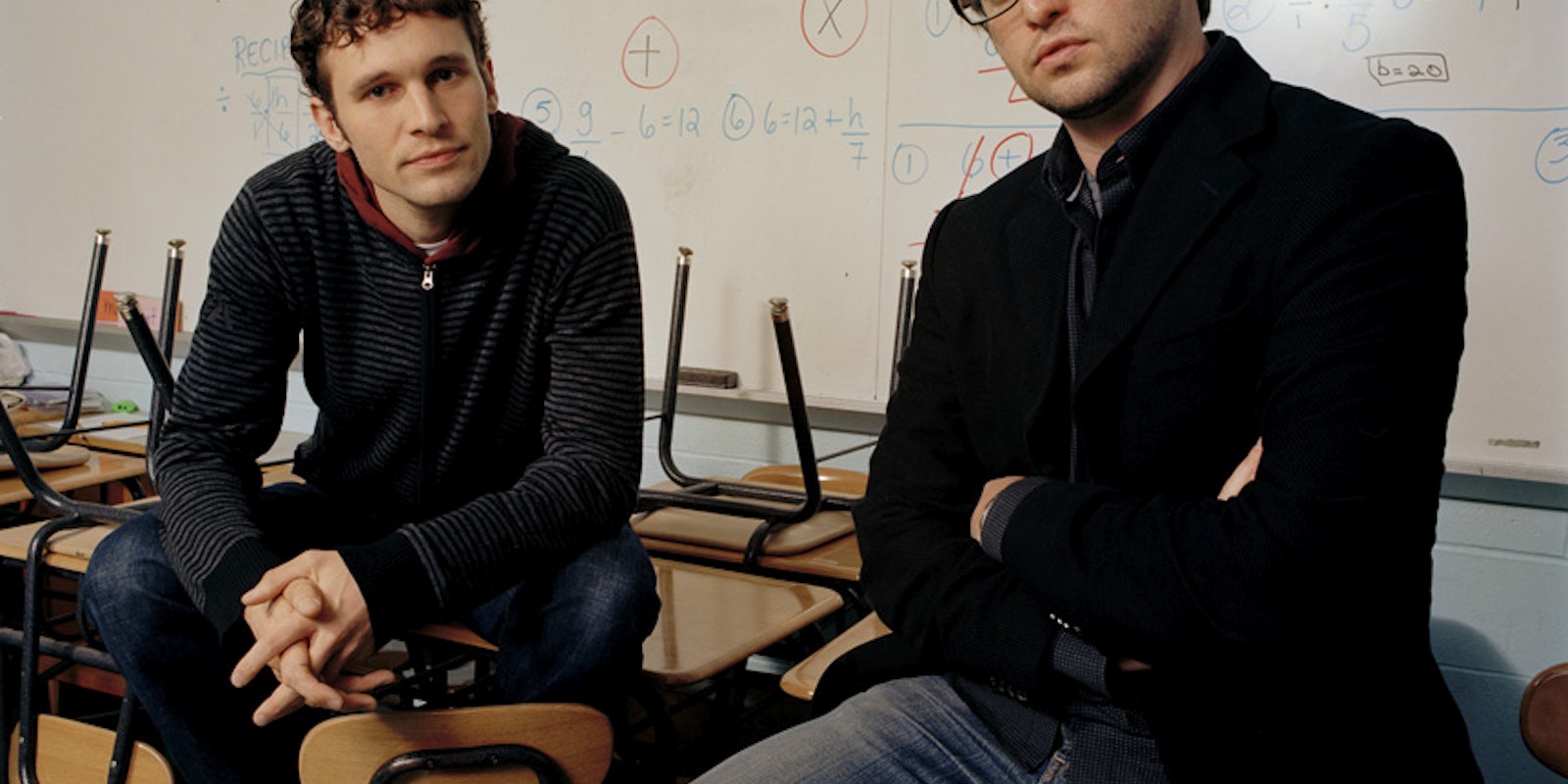Earlier this month, with the Super Bowl looming and the potential for questions from thousands of kids across the country asking what the “XLVI” in Superbowl XLVI meant, Flocabulary cofounder Blake Harrison took to NPR’s How To Do Everything podcast to explain the roman numeral system through a series of rapped mnemonics, all of which arrive on the beat to Dr. Dre’s “The Next Episode.”
Harrison and cofounder Alex Rappaport have spent the past seven years providing teachers and students with ulterior methods of learning material. Running the Brooklyn-based company, the two create school programs and lesson plans built around rhyme schemes, hip-hop beats, and relevant pop culture talking points.
Rappaport told the Daily Dot:
“We found that using music, specifically hip-hop, is a great way to motivate kids to connect with what’s really some dry and boring content. It’s not necessarily that it has to be done with hip-hop; there are other ways to make academic material engaging. But I come from a music background and Blake comes from a writing background, so it was kind of perfect for us to team up and use our interests and talents to make music for education.”
The company produces albums—full class sets, mini sets and lesson books—on nearly every topic a student could learn about in grade school, from basics in science, US history, and math to more intensive lessons like Shakespeare and SAT vocabulary.
It’s a style of education that’s been toyed with in similar capacities by organizations such as Hip Hop 4 Schools and individual classrooms around the country, like Los Angeles middle school teacher LaMar Queen’s, but Harrison and Rappaport have been able to separate themselves from the pack thanks to the strength of their programs and lesson plans.
“They follow all the principles that you’re supposed to with K-12 students,” said Donna Murdoch, Temple University’s associate director of virtual instruction. “You want to keep their pace and meet them where they live.
“Kids always have their ear buds in and want to listen to music. And they’re such good multi-taskers that they can have the songs on in the background while they’re doing something else. They can listen while they’re checking their Facebook, and kids seem to remember the words to songs better than they remember classroom lessons.”
Six months ago Flocabulary decided to take its programs online, where Rappaport reports that the company has seen a steady increase in subscriptions and school presence. Nearly 50,000 individual users have signed up for free trial accounts.
Fifty schools and school districts have purchased the full Flocabulary program as a site license, a blanket subscription that gives every student and teacher access to the Flocabulary catalog. An additional 2,000 teachers around the country have subscribe to the service, as well. What was once a stack of books like any other classroom lesson plan has now been transformed into a series of flocabulary.com hosted videos readily available at each student’s fingertips.
Rappaport believes the rapid subscriber growth is in direct correlation to the way that teachers are creating lesson plans and using modern technology like smart boards and Internet-based homework assignments.
“I think the customers that have basic technology in their classrooms are responding really well,” he said.
“A teacher can pull up our video about ancient Egypt and hop the kids into learning about pyramids. That’s a really quick, three minute activity that can change the course of how a student thinks about Egypt. It’s sort of reinvigorated us because now the content can have new life. It was sort of trapped in these books for a while, but now it’s online and out there and ready to be used.”
Students across the country are responding to the change, as evidenced by some of the comments found on Flocabulary’s YouTube videos, like this rap about Martin Luther Ling’s “Let Freedom Ring” speech and this refresher course on “The Adventures of Huck Finn.”
“This Song Isn’t Just Tight…” wrote 98FanColts in response to the MLK lesson. “It Has a Point To It… So Black People Should Really Really listen And When You Go To Bed At Night In Your Prayers Thannk (sic) Martin Luther King Jr.”
No comment sums up the effect that Flocabulary has on students quite like one that came in response to Flocabulary’s animated rap about Shakespeare’s “Much Ado About Nothing”:
“saw this in class today,” wrote elementshero89. “one of the ‘fun’ things in class, so cool it had to be watched at home again.”
